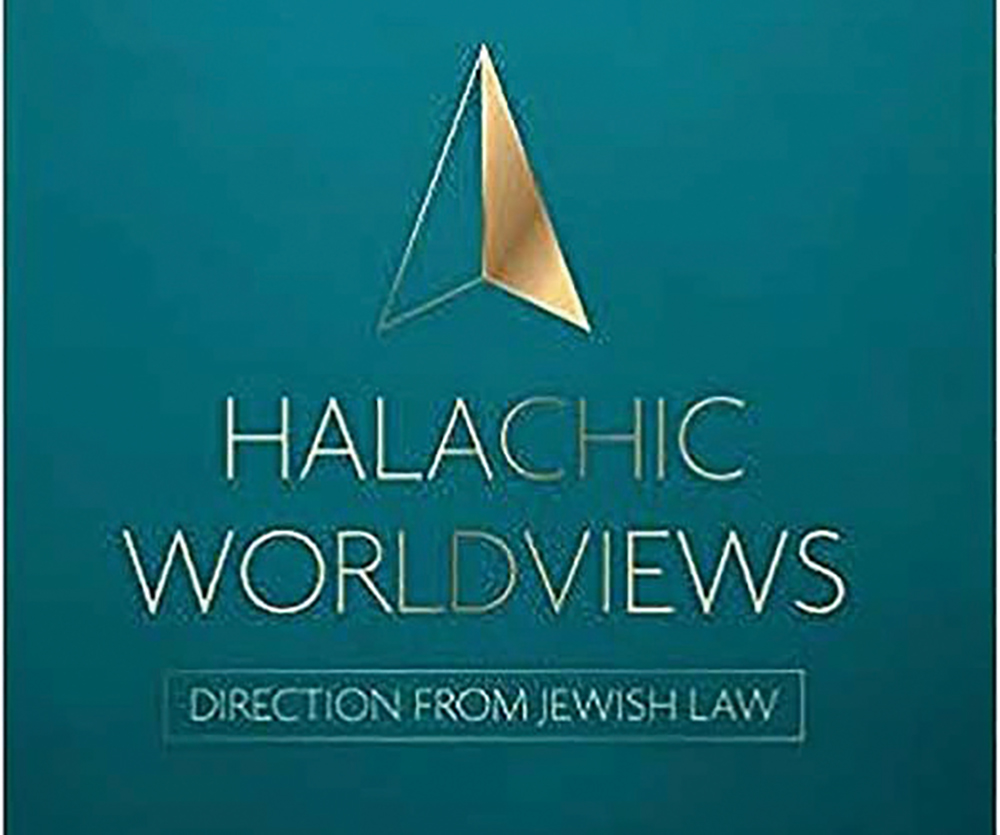
Reprinted with permission from The Jewish Press.
Reviewing: “Halachic Worldviews: Directions from Jewish Law” by Rabbi Tzvi Goldstein.
Mosaica Press. 2023. English. Hardcover. 285 pages. ISBN-13: 978-1957579603.
Many teaching aspects of kiruv rechokim can speak to the listener at the most juvenile levels. The Torah Codes come to mind, but there are others. The danger of that approach is not just to the person far from Torah, but also to the teacher.
Such that Rav Nachman Bulman told one of the most influential people in kiruv rechokim, Rabbi Mordechai Becher, that while teaching at an elementary level is indeed praiseworthy and necessary, he should ensure that he also teaches serious Torah regularly, to ensure that he gets sufficient intellectual stimulation.
Sarah Hurwitz, author of “Here All Along: Finding Meaning, Spirituality, and a Deeper Connection to Life—in Judaism (After Finally Choosing to Look There),” told Rabbi David Bashevkin in an interview on 18Forty (an excellent source for intellectual ideas), that she was blown away by what she found when exploring Judaism. She found that there were 4,000 years of wisdom from millions of her ancestors about what it means to be human, about how to live a good life, about how to be a deeply good person, about how to find the profound spiritual connection that was not just God is a man in the sky who controls things, which she never believed.
For readers looking for a deep, profound book about halachic ideas, “Halachic Worldviews: Directions from Jewish Law” (Mosaica Press) by Rabbi Tzvi Goldstein is an interesting new choice. Rabbi Joseph Soloveitchik concluded his seminal 1944 essay, “The Halakhic Mind,” with the observation that “out of the sources of halakhah, a new world view awaits formulation.” And that is the foundation the book builds upon.
However, creating that formulation is a challenging task. David Goldman writes that we are still waiting for the new world view for which the Rav hoped. Goldman states that not only have we failed to make progress in Rav Soloveitchik’s program, but in some ways, we have lost ground. Thanks to the devoted efforts of the Rav’s students, we have an extensive body of lecture notes and transcriptions that provide intimations of his new world view. But we have a shrinking number of students prepared to follow his train of thought in such writings as “The Halakhic Mind.”
Here, “Halachic Worldviews” is much more accessible than the notoriously difficult “The Halakhic Mind.” Goldstein selects 16 different topics, including bris milah, property ownership, slavery and more, and develops ideas on how these fit perfectly into a halachic system.
The Rav’s grandson Rabbi Meyer Twersky wrote that the Rav’s observation is exciting because it promises new vistas of thought—a comprehensive philosophy of halacha. But it is also frustratingly and endlessly tantalizing because the Rav, for whatever reason, never wrote the sequent volume on the philosophy of halacha.
Goldstein has taken up that challenge and written an intellectually stimulating and rigorous book, weaving together the strands that make for that integrated halachic world view. While Goldman wrote that we are still waiting for the new world view for which the Rav hoped, this book might just be the start of that.
Ben Rothke lives in New Jersey and works in the information security field. He reviews books on religion, technology and science. @benrothke












